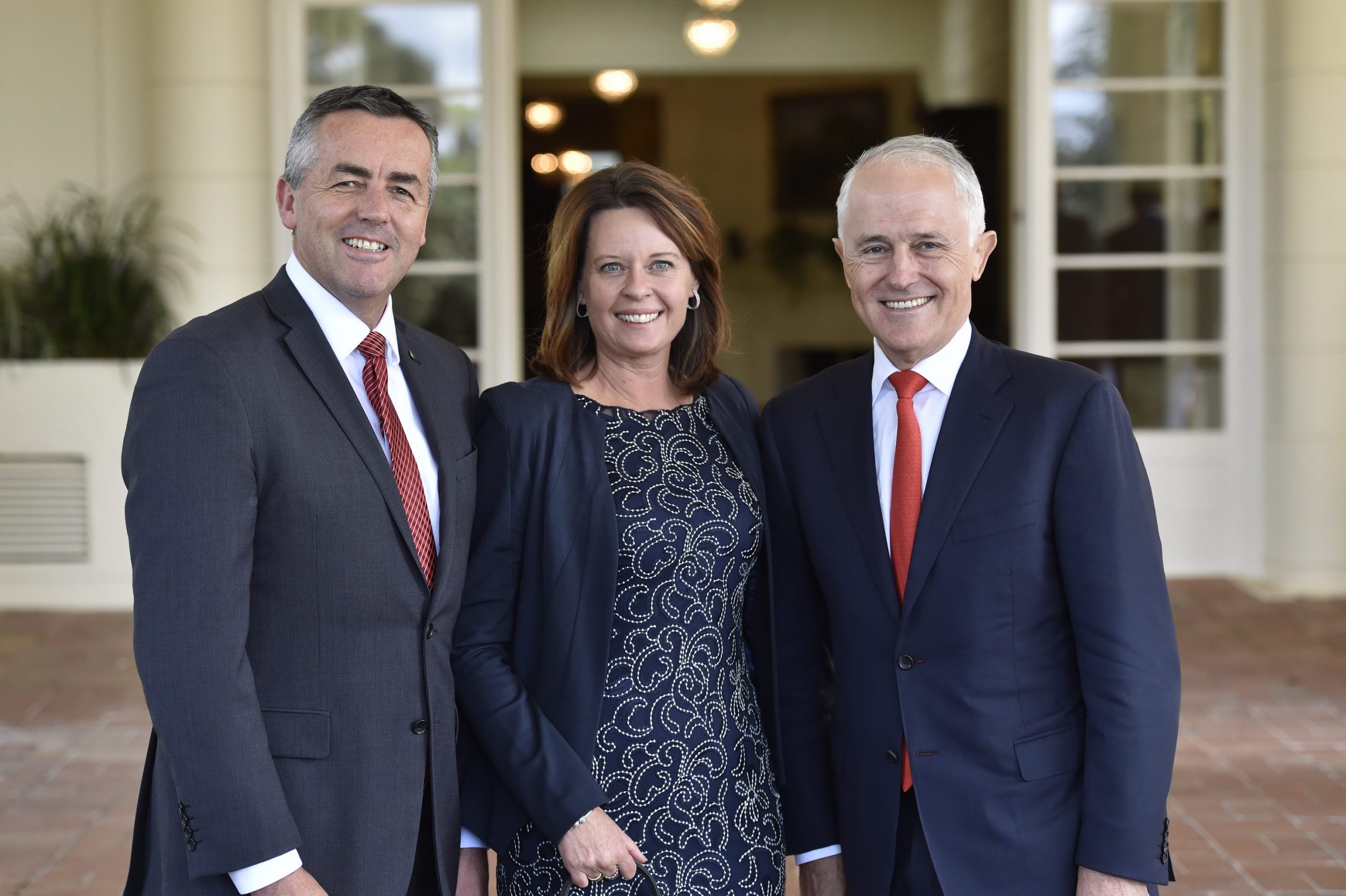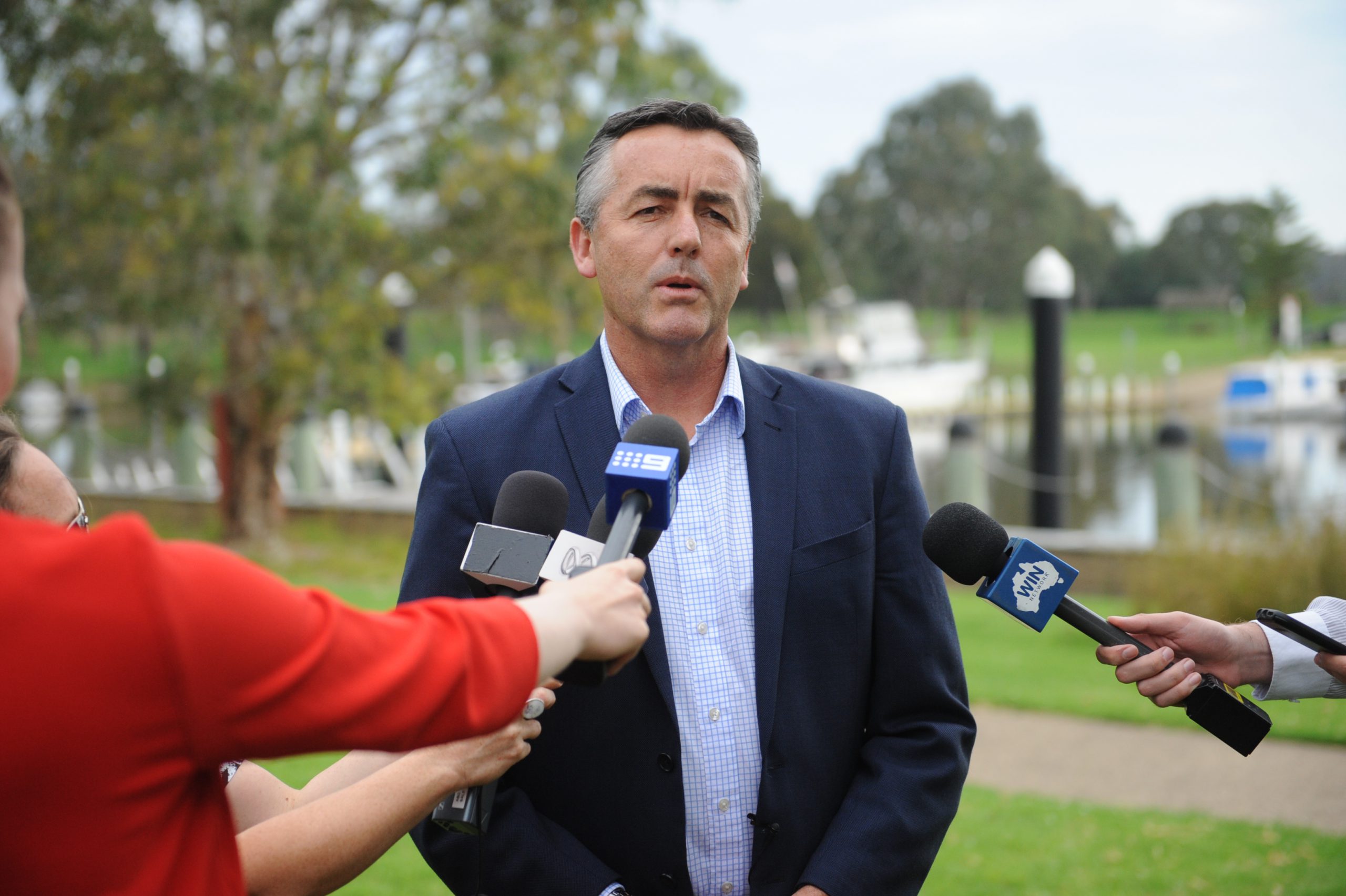As Gippsland MP Darren Chester enters the Morwell café where we’re due to meet he looks a politician on top of the world.
It’s not without reason, as we’re here to discuss his promotion to minister for veterans affairs following a reshuffle brought on by Barnaby Joyce’s resignation.
Before we sit down he stops to press the flesh with the voters – a father and his teenage son who are waiting for their coffee.
He has a spring in his step that was absent when he fronted local media at the Port of Sale in December to announce he had been booted from his role as minister for infrastructure and transport – axed because Mr Joyce wanted more Queenslanders in cabinet.
In the corridors of power it was whispered that he paid the price for helping fellow Victorian, Senator Bridget McKenzie, get elected to the party’s deputy leadership over Mr Joyce’s preferred candidate, Senator Matt Canavan.
“My sense of it was I hadn’t done anything wrong to warrant being sacked from cabinet so I had to just accept the fact that the leader of the party has the right to choose his cabinet team and you have to accept the decision,” Mr Chester said.
“I guess my frustration was more around the fact I thought we had more to do and we were heading in the right direction in terms of infrastructure in regional areas and the road safety agenda I was pursuing and to not be able to finish that work was disappointing.”
Returning to the backbench, he announced he would rededicate himself to his local constituency and use the opportunity to champion on issues such as the mental health of Australian veterans.
It seems fitting then, that he should find himself in the veterans affairs portfolio.
“I didn’t expect to have this opportunity when I was moved out of cabinet,” the Gippsland MP said.
“I was intending to use my time on the backbench to pursue this issue in any case because it had become apparent to me through conversations with colleagues and in my own electorate that there are some veterans in our community and their families that feel they are not being supported well enough.
“Some of that comes around to not being able to access services or knowing which services are available to them, some of that comes around through a sense of pride that they’re not going to reach out for assistance and the stigma attached to mental health issues to break down some of those barriers.”
It would have been hard to imagine Mr Chester’s return to the ministry six months ago, but then not much about his dumping and return to the ministry has been normal.
Reshuffles invariably generate a list of winners and losers.
But there haven’t been any ministerial sackings in recent times which have caused as much controversy as the decision to send the Gippsland MP to the backbench.
Sydney Morning Herald and The Age national affairs editor Mark Kenny called him “the Nationals’ most competent figure” and Prime Minister Malcolm Turnbull was quick to make clear the decision was Mr Joyce’s, not his.
The state Labor government – not known for praising Nationals MPs – even issued a statement saying Mr Chester paid the price for “standing up for our state”.
The next day he was on Sky News with political editor David Speers outlining a vision of the Nationals as more than “blokes in big hats”.
It’s a view of the party that Mr Chester – the first National to break ranks and back same-sex marriage – stands by.
“The comment I made was that the National Party has to be about more than blokes in big hats because we are as regional people far more diverse than that,” he said.
“We need to appeal to younger voters and regional cities as well as small country towns; we need to appeal to female voters as well.
“I think it’s critical for our party’s future that we appeal to a broader range of people and recognise that regional Australia is changing.”
Mr Chester said the same-sex marriage vote was the “perfect illustration of the fact that regional areas are not as conservative as people might think”.
It has been a frustrating year for the government as they trail in the polls and struggle for clean air to sell their message.
Mr Joyce’s resignation after revealing he was having a child with a former staffer has not helped.
But Mr Chester believes the party will be forgiven by its regional constituents.
“Broadly, the Nationals have had 100 years of standing up for regional Australians and delivering for them and I think the voting public will forgive us a pretty untidy month or six weeks as long as we get back to focusing on them as quickly as possible,” he said.
With an election looming, the Gippsland MP is convinced the government’s “long list of achievements” will stand up to scrutiny.
But for now Mr Chester is focused on making the most of his unexpected return to the ministry.
“I guess I’m in a bit of a hurry this time,” he said.
“I recognise it’s 12 months to the next election and there’s things I want to do in the veterans affairs portfolio and I’ll be pursuing them very aggressively and I’m urging the department to keep up with me.”












